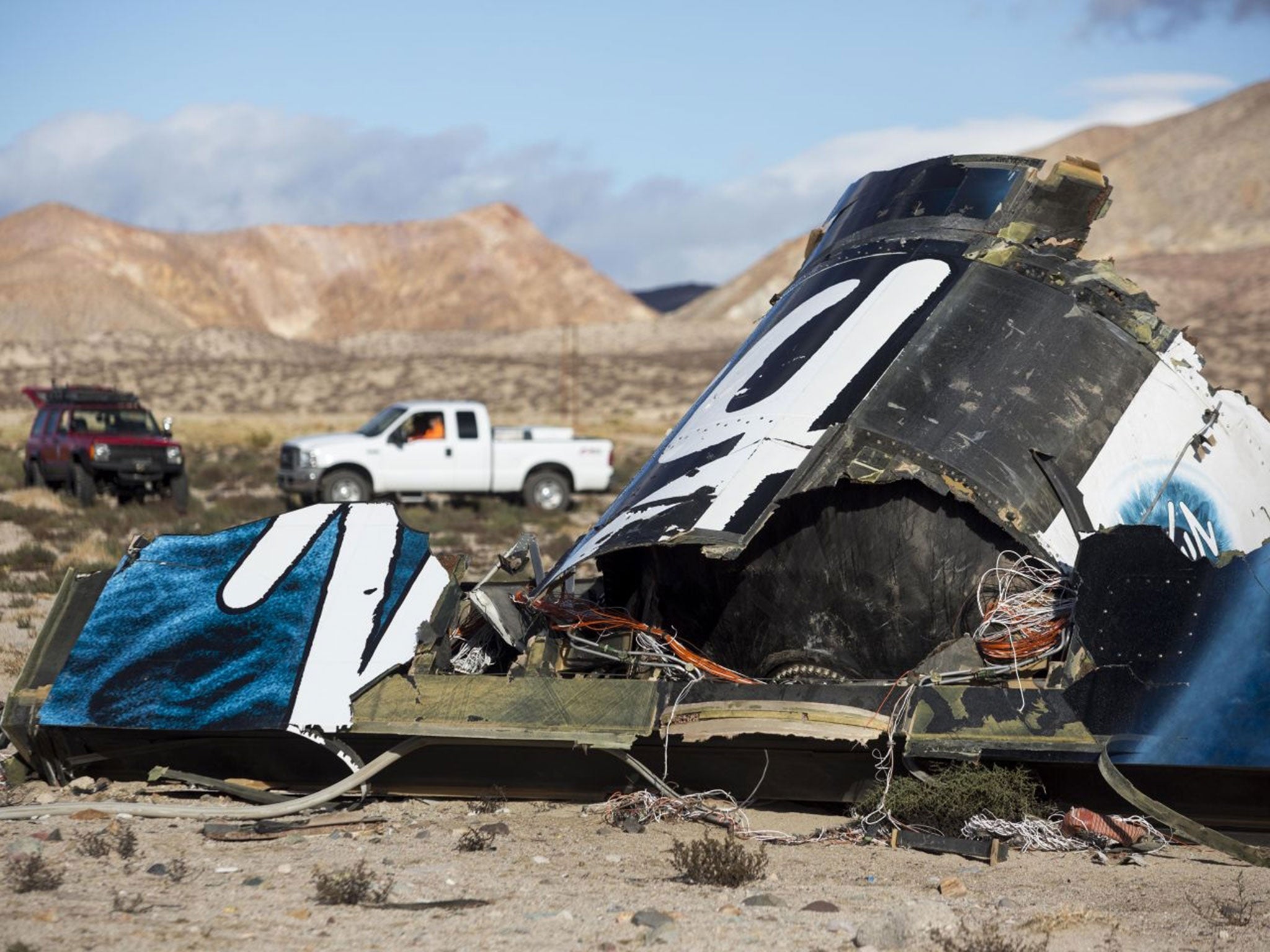Virgin Galactic crash: Investigators reveal accident was caused when co-pilot prematurely unlocked the brakes
Virgin will continue developing a spacecraft in the wake of the fatal crash

Officials investigating the Virgin Galactic spaceship crash have said that it was caused by a catastrophic structural failure triggered when the co-pilot unlocked the craft's braking system early
Virgin Galactic's SpaceShip2 broke apart over the Mojave Desert during a test flight in November 2014. Michael Alsbury, 39, died in the incident, and pilot Peter Siebold, 43, was seriously hurt.
National Transportation Safety Board (NTSB) investigators said the resulting aerodynamic forces from the premature unlock of the braking system caused the brakes to actually be applied without any further action by the crew.
Investigators said no safeguards were built into system to overcome the error of the co-pilot.
During their investigation, officials considered the quality of training pilots received, whether the rocket was designed to high-enough standards and whether mechanical problems could be to blame.
Investigators said that unlocking the spacecraft’s brakes should not have sent them into action. However, the resulting stress was a contributing factor as to why the spacecraft broke apart.
Virgin Galactic will not be the only organisation under scrutiny following this investigation. Scott Pace, director of the Space Policy Institute at George Washington University, said the industry would be watching to see if NTSB went beyond the specific cause of the accident in its findings.
“Simply focusing on an immediate cause is usually not enough to understand deeply how to improve safety,” he said.
Wayne Hale, the former manager for Nasa's space shuttle programme, said the accident was unfortunate and certainly made the suborbital space industry more cautious, but it could yield some positive results.
“We may come out of this with a safer and more robust industry in the near future,” he said.
Virgin Galactic has been undeterred by the crash, and has continued with its plan to build a craft designed for space tourism by developing another ship.
Company officials have recently that their commitment to commercial spacecraft has not waivered and they expect to resume test flights later this year.
The company hopes to perfect a carrier that can transport six passengers more than 62 miles above Earth.
Speaking at the time of the crash, Virgin Group founder Sir Richard Branson defended the space programme, and insisted that the risks are "worth it".
Additional reporting by PA
Join our commenting forum
Join thought-provoking conversations, follow other Independent readers and see their replies
Comments